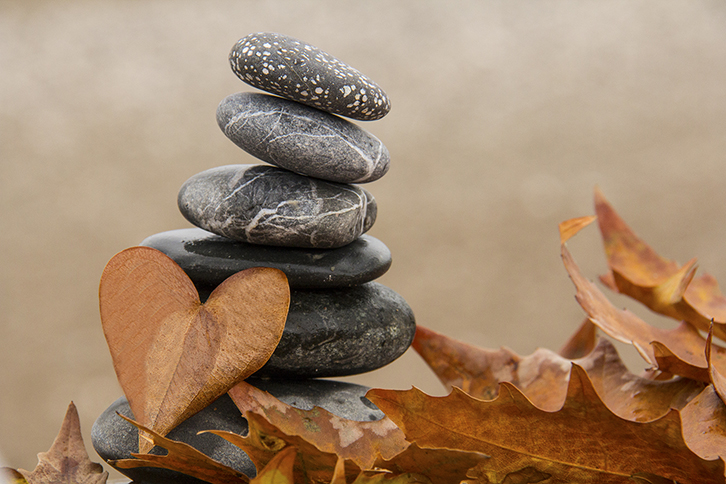
6 Ideas to Help You Cope with Grief at Thanksgiving
No matter when a death occurs, holidays are particularly difficult to navigate. Holiday memories of past joys are particularly cutting when we are currently grieving.
I was reminded of this when I saw a Today Show segment with Kathie Lee and Hoda Kotb in 2015. It was right before Thanksgiving and Kathie Lee, who just lost her beloved husband of 29 years, pro football hall of famer Frank Gifford, talked about how this holiday season was going to be “bittersweet without him.” I thought to myself, “That’s putting it mildly.” But she was on TV and, despite the gaping hole in her heart, the show must go on and she must keep her composure. I wouldn’t have blamed Kathie Lee if she had said, “This holiday season I just want to crawl into bed and pull the covers over my head.”
It doesn’t matter if our loved ones have been gone just a few months, as in Kathie Lee’s case, a year, or many years, the holidays have a way of hitting us where we are already hurt. We find ourselves in a kind of paradoxical universe where we’re supposed to be happy, even downright joyful, but instead, feel tremendous sadness and loss. While there is no “right” way to deal with loss and grief during the holidays, here are six ideas that might help you cope this Thanksgiving.
1. Find an Ally
If you’ve experienced a rather recent loss, you’re just not going to be in the mood to celebrate with friends and family. Yet many will tell you it helps to be around people who love and care about you. And in some respects, it may help. But what won’t help is holding all of your true emotions inside and putting on a brave face so as not to be a “downer” to all of the other holiday revelers.
This is why you’ve got to have an ally; someone who knows exactly how you’re feeling and that your insides do not in any way, shape, or form match your cheery demeanor. Choose someone you really trust to whom you can express your truth and vulnerability. Doing so may mean you will feel less isolated during the next month filled with Thanksgiving, Christmas, and New Year’s Eve.
2. Leave When You Need to Leave
Even when you’re not grieving the loss of a loved one it’s an awful feeling to be stuck at a party or event because someone else drove you. Add to this awfulness a broken heart and it’s perfectly unbearable. If you do decide to be social and attend holiday parties and get-togethers, make sure to either drive yourself or bring the number of a local car service so you can leave when you need to without being disruptive.
3. Create New Traditions
“Grief is in two parts. The first is loss. The second is the remaking of life.” Anne Roiphe
Grief may be in two parts, but when a loved one dies, our heart finds itself in three parts. Part of it wants to also die, part wants to live, but in the past, and part wants to believe with all of its heart that it will feel joy and love again. As a way of feeding this last part, you may want to try and create new traditions this holiday as a way of remembering and honoring your loved one. This is a great way to not only move into life again but also help other loved ones talk about the deceased. For instance, invite people to decorate your tree with their favorite photo of your loved one and, as each person places their photo on the tree, they can share a memory of your loved one.
4. Find a Grief Group
Your friends and family may love and care about you very much, but it doesn’t necessarily mean they know exactly what you’re going through. This is especially true for parents who have lost a child or younger people who have suddenly lost their spouse. Finding a support group of people who understand your feelings can help you feel less alone this holiday season.
5. Volunteer
Being of service and making others feel good when you feel so bad has a natural way of making you feel better. Consider volunteering at an animal shelter, soup kitchen, or hospital this holiday season. Being an important part of a solution for someone who is also struggling during the holidays can ease the symptoms of depression.
6. Focus on Self-Care (and Cry if You Need to)
Practicing self-care during the holidays is important for those who are grieving the loss of a loved one. While you may naturally want to drink in excess or eat “comfort” foods or stay up all night crying and reliving the past, don’t. Instead, take care of yourself and get enough rest, drink more water than alcohol, make sure to eat healthy, wholesome foods, and exercise when you can. Love yourself as your loved one would. Don’t put pressure on yourself to hold it all together. Expressing your sadness is healthy for you and may even help other people access their own emotions. If you feel a cry coming on, even an ugly one, let it out.
Holidays are, without a doubt, some of the most painful days we experience after a loss. Your journey through them will be as individual as you are. All you can do, really, is be gentle and kind to yourself, and feel your sadness while being open to happiness.
by Jenna Bruce, Sunset Contributor



